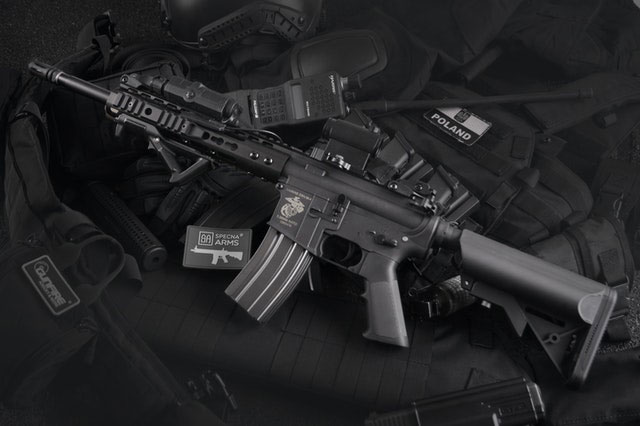Nairobi – Tigrayan rebels said on Wednesday they have begun handing in their heavy weapons, a key part of a deal signed more than two months ago to end a deadly conflict in northern Ethiopia.
The terms of the November 2 peace agreement include disarming rebel forces, restoring federal authority in Tigray and reopening access and communications to the region, which has been cut off from the outside world since mid-2021.
Fighting broke out in November 2020 when Prime Minister Abiy Ahmed deployed the army in a bid to topple Tigrayan leaders who had been challenging his authority for months and whom he accused of attacking federal military bases.
“Tigray has handed over its heavy weapons as part of its commitment to implementing the #Pretoria agreement,” Tigray People’s Liberation Front (TPLF) spokesman Getachew Reda tweeted Wednesday, referring to the November 2 deal signed in the South African capital.
“We hope & expect this will go a long way in expediting the full implementation of the agreement. We hope & expect!”
ALSO READ | Ethiopian federal police deploy in Tigray after peace deal
There has been no reaction yet from Abiy’s government to his statement, and spokespeople did not respond to AFP requests for comment.
However, the development was hailed by the East African regional grouping IGAD, which oversaw the handover.
“We are delighted (at) the progress made in the implementation of the cessation of the hostilities agreement,” said IGAD spokesman Nuur Mohamud Sheekh.
“The parties have kept their fidelity to the letter and spirit of the agreement,” he told AFP in a message, saying he hoped the process of handing over the weapons would wrap up by the end of January.
A deal signed in Nairobi on November 12 on the implementation of the Pretoria deal said the Tigrayan disarmament would take place at the same time as the withdrawal of foreign and non-federal forces.
Neighbouring Eritrea has backed the Ethiopian army in the conflict but Asmara did not participate in the Pretoria talks.
With access to Tigray restricted, it is impossible to independently verify the situation on the ground.
An aid worker based in the strategic Tigrayan city of Shire told AFP by phone Wednesday that he saw Eritrean troops as well as members of armed forces from the neighbouring Amhara region.
‘Atrocities’
The exact death toll from the brutal two-year conflict, which was largely fought amid stringent media restrictions, is unknown, although it unleashed a desperate humanitarian crisis in Tigray.
It has displaced more than two million Ethiopians and plunged hundreds of thousands of people into near-famine conditions, according to the UN, and left more than 13.6 million people dependent on humanitarian aid in northern Ethiopia.
The International Crisis Group think tank and rights group Amnesty International have described the conflict as “one of the deadliest in the world”.
The fighting has stopped since November’s peace deal and the rebels have claimed to have disengaged 65 percent of their fighters from the front lines.
But Tigrayans have denounced “atrocities” they say have been committed by Eritrea’s army and the Amhara regional forces.
ALSO READ | Ethiopian Airlines makes first flight to Tigray in 18 months
Tigrayan authorities, as well as residents and aid workers who testified to AFP, accuse them of looting, rape, executions and abductions of civilians.
Humanitarian operations have been ramped up since the peace deal, but the amount of food and medical aid being delivered remains far below the enormous needs.
Mekele was connected to the national power grid on December 6 and the Ethiopian Electric Utility has announced a plan to fully restore electricity in cities and towns in war-affected areas within two weeks, local media reported.
Ethiopia’s main bank CBE said on December 19 that it was resuming operations in some towns, and telephone communications with the region have begun to be restored.
An Ethiopian government delegation, including the prime minister’s national security advisor Redwan Hussein and several ministers, visited Tigray’s capital Mekele on December 26, marking a major step in the peace process.
A few days later, on December 29, Ethiopian federal police entered Mekele for the first time in 18 months.
Follow African Insider on Facebook, Twitter and Instagram
Source: AFP
Picture: Pexels
For more African news, visit Africaninsider.com


